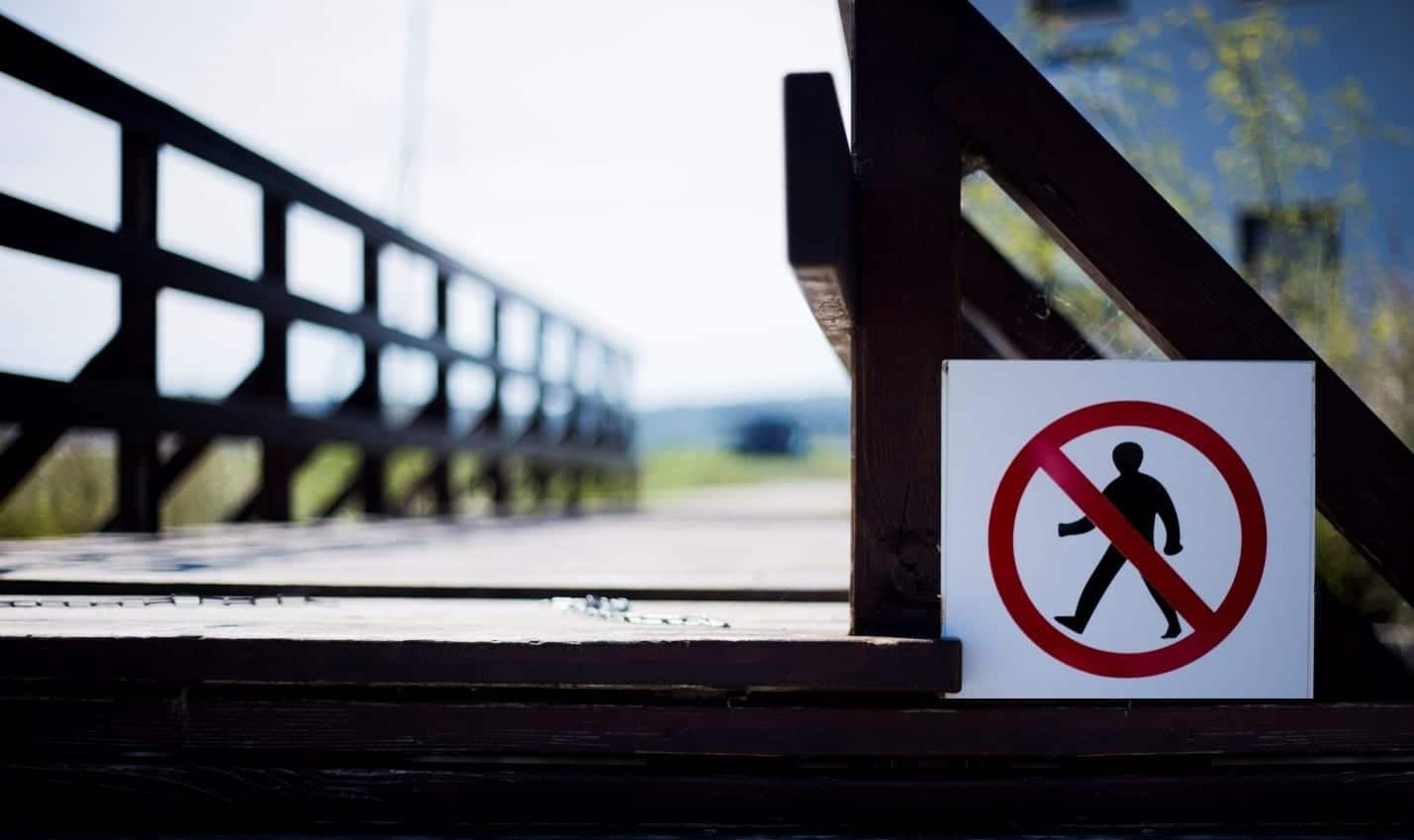What Constitutes Criminal Trespass in Illinois?
Many people think of trespassing as teenagers climbing fences with “No Trespassing” signs in the dead of night. They’re victimless crimes that are more about exploring and pushing boundaries than doing anything truly wrong – right?
Unfortunately, while trespass crimes may seem like relatively minor offenses, those convicted of criminal trespassing face serious charges. You might also be surprised by the wide array of activities that are considered criminal trespassing under Illinois law.
What Is Trespassing?
Trespassing essentially means being somewhere you are not supposed to. Legally, trespassing means physically being on another person’s property without their permission. Property owners have the right to have trespassers arrested and charged if they are found on their premises.
Usually, trespassing is prosecuted as a misdemeanor. However, entering some properties—including many government buildings—may land trespassers a felony charge.
The severity of the charge and punishment also depends on the trespasser’s intention. For example, if a person is simply passing through a restricted area or exploring, they would likely only face the misdemeanor charge. If, however, law enforcement believes you trespassed with the intent to commit a crime—like burglary—you may receive additional, harsher penalties.
Different Types of Trespass Crimes in Illinois
Criminal Trespass to Vehicles. A person is trespassing if they knowingly operate or enter part of a watercraft, aircraft, vehicle, or snowmobile without the authority to do so. This is called “trespass to vehicles” and it’s a Class A misdemeanor.
Use of Electronic Tracking Devices. Under the same trespassing statute, it is a criminal offense to apply an electronic device to a vehicle that transmits information of the vehicle’s location. The most common example would be putting a GPS tracker on or in a car.
The statute does note some exceptions. It is legal if the owner has given consent, or if it was a feature added by the vehicle manufacturer (like a built-in GPS system). Law enforcement and government agencies are also exempt, as are companies tracking employees using a company vehicle.
Criminal Trespass to Real Property. Statute 720 ILCS 5/21-3 concerns the most commonly known form of trespassing. “Trespass to Real Property” means knowingly entering or remaining on premises—either land or buildings—without permission from the owner.
Additionally, an individual is guilty of trespassing if he or she has been asked to leave by the owner of the property and fails to do so. This also includes presenting false documents to convince landowners or occupants to allow you to stay on the land. Removing certain notices or entering agricultural premises without permission from the owner are also actions that are considered trespassing under the statute.
Criminal Trespass to a Safe School Zone. If you have been forbidden from the premises of school—for example, if a student is suspended—you may also receive criminal trespassing charges for entering school grounds.
State law also makes special note of trespassing on state-owned lands and nuclear facilities, both of which are charged as Class 4 felonies. Trespassing in place of “public amusement,” such as a sport arena, is also charged as Class 4 felony. If an individual enters restricted portions of airport landing facilities, they can be charged with a Class 3 felony.
Illinois Charges for Criminal Trespassing
As mentioned before, most trespassers face misdemeanor charges in the absence of other crimes. They will also be civically liable for any property damages. Misdemeanors, while not as serious as felonies, are still criminal charges. As such, a conviction may mean community service, a criminal record, and fines.
If you are facing criminal trespass charges, contact a knowledgeable criminal defense attorney as soon as possible.
About the Author:
Andrew M. Weisberg is a former felony prosecutor who now serves as a defense attorney in the greater Chicago area. He has extensive experience in handling all types of criminal cases, from sex offenses and domestic violence to retail theft-related crimes, Murder, and drug crimes.







 Blog Home
Blog Home 











